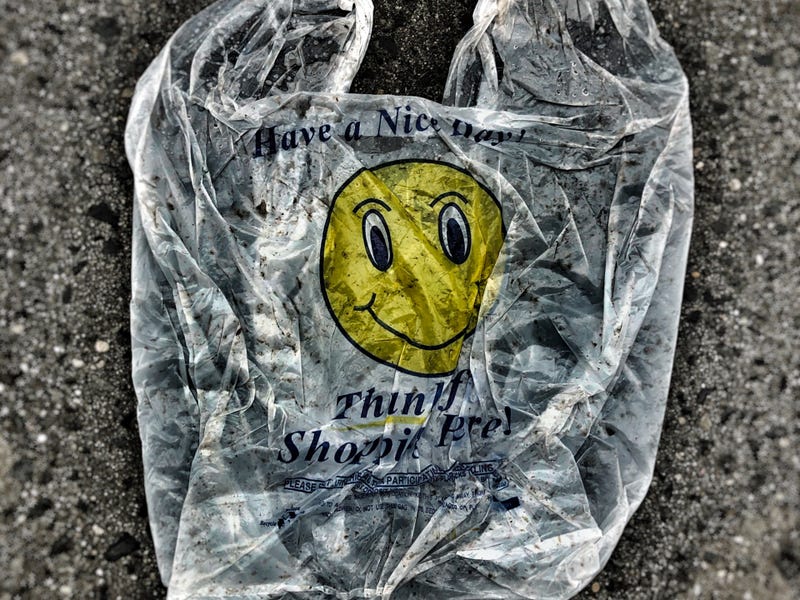
NEW YORK (1010 WINS/WCBS 880) — In 2022, New Jersey enacted a plastic bag ban in an effort to lower the state’s plastic consumption. A study by a business-research firm released earlier this month found that consumption has instead tripled.
While the ban did succeed in decreasing total bag volumes by 60%, the transition from single-use plastic film bags to alternatives resulted in a near three-fold increase in plastic consumption for bags, according to research from Freedonia Group, a subsection of MarketResearch.com.
The study shows that six times more woven and non-woven polypropylene plastic was used in the production of reusable bags that were sold to consumers as alternatives.
The material shift to polypropylene bags contributed to a 500% increase in greenhouse gas emissions, as compared to non-woven polypropylene consumption in 2015, the study showed.
Most of these alternative bags are made with non-woven polypropylene, which consumes over 15 times more plastic, and generates five times more greenhouse gas emissions per bag produced than polyethylene (single-use) plastic bags.
For several reasons resulting from the ban, alternative bag sales swelled, the study found.
New Jersey retailers, that were suddenly unable to offer plastic bags at checkout, began offering alternative bags. Consumers have been moving toward grocery pickup and delivery services, which requires the use of alternative bags for a transaction.
A cost analysis evaluating NJ grocery retailers by Freedonia Group showed that alternative bag sales can profit a typical store $200,000, benefitting retailers economically as environmental impacts continue to suffer.
The study showed that, on average, an alternative bag is only used two or three times before being thrown away. This doesn’t meet the recommended reuse rates that would be necessary to mitigate the increased greenhouse gas emissions created during production.
When Gov. Phil Murphy signed the ban into law on Nov. 4, 2020, he said that the bill, which would take effect in May 2022, would “[address] the problem of plastic pollution head-on with solutions that will help mitigate climate change and strengthen our environment for future generations.”
